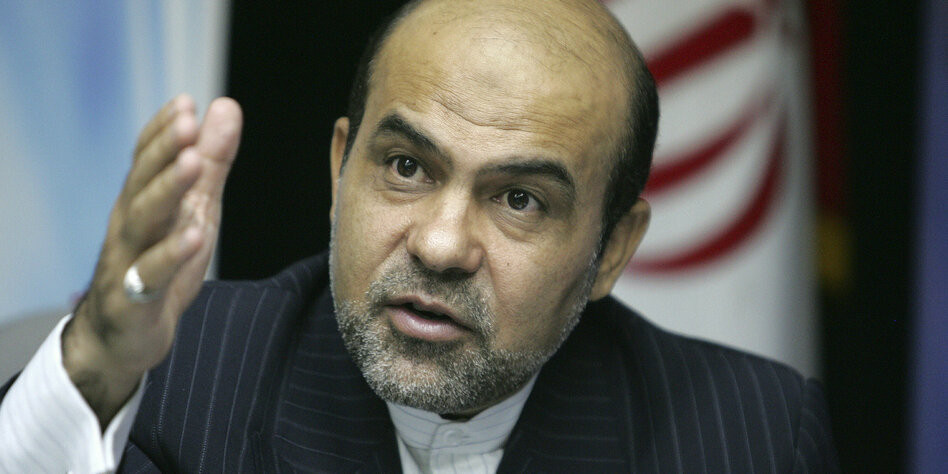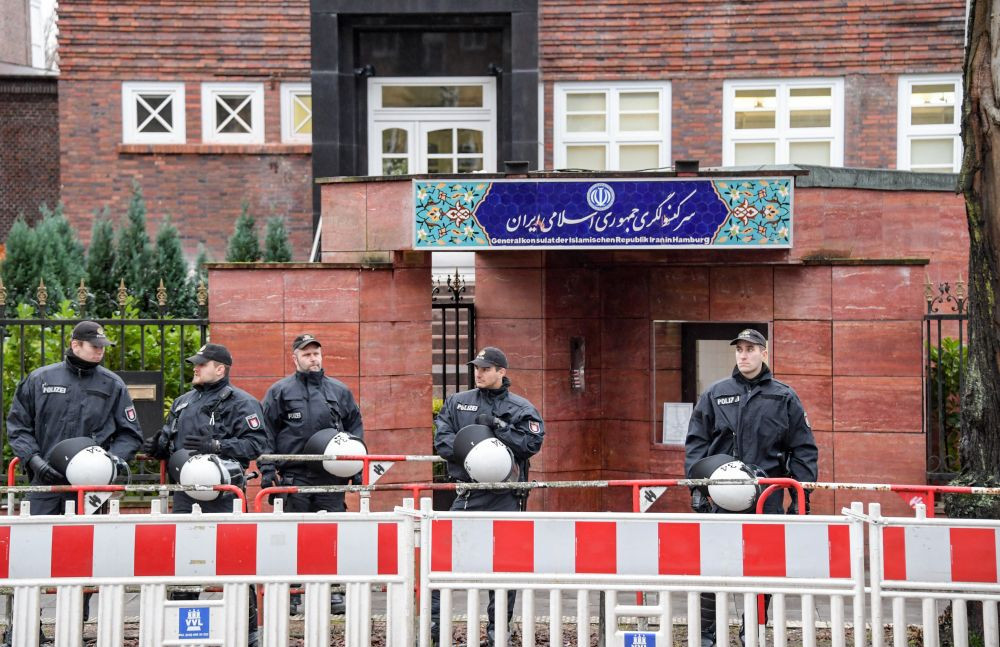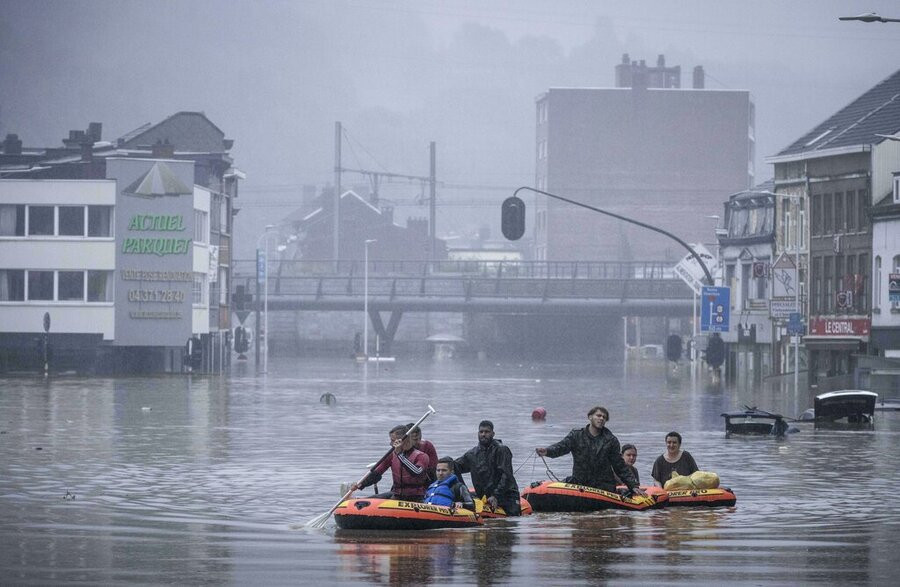Germany has taken a decisive step in response to the execution of German-Iranian dual national Jamshid Sharmahd, closing all three of Iran's consulates in the country. The move, announced by German Foreign Minister Annalena Baerbock on Thursday, signifies a significant escalation in tensions between the two nations.
The consulates in Frankfurt, Hamburg, and Munich are to be shut down, with the 32 consular staff members losing their rights to live in Germany and being required to leave the country, unless they hold German citizenship.
Baerbock stated that Germany had repeatedly and unequivocally warned Tehran that the execution of a German citizen would have serious consequences. "We made it crystal clear to Tehran time and again that the execution of a German national would have severe consequences," she said, emphasizing the gravity of the situation.
The closure of the consulates follows the departure of Germany's ambassador to Iran, Markus Potzel, who left the country for consultations in Berlin and to protest "in the strongest terms" against Iran's actions. A spokesman for the German Foreign Office had previously described the "murder" of a German citizen as "extremely straining" on relations with Iran, which were already at a minimum.
The execution of Sharmahd, a German-Iranian activist who had been living in the United States, has drawn widespread condemnation from the international community. He was sentenced to death in 2023 after a trial on terrorism charges that were widely disputed. Sharmahd, who had been kidnapped in Dubai by Iranian security forces in 2020, was accused of planning a 2008 attack on a mosque that killed 14 people, charges that were rejected by the German government, relatives, and human rights activists.
Beyond the closure of consulates, Germany is also seeking EU-wide sanctions against those involved in Sharmahd's execution, including the Iranian Revolutionary Guard. Baerbock condemned Iran for playing politics with hostages, accusing Tehran of seeking to use Germany's support for Israel in the widening Middle East conflict as a justification for Sharmahd's killing.
The minister highlighted the increasingly strained diplomatic relations between Germany and Iran, stating that "our diplomatic relations are already at an all-time low." She added that "Further Germans are also being unfairly held. We are also deeply committed to them and continue to work tirelessly for their release."
The execution of Sharmahd has sparked global outrage and calls for accountability. Germany's decision to close Iranian consulates and seek sanctions against those involved in the execution represents a significant step towards holding Iran accountable for its actions.
International Condemnation
The international community has condemned the execution of Jamshid Sharmahd, with numerous countries and organizations expressing their outrage and calling for justice.
The United States State Department has described Iran's treatment of Sharmahd as "reprehensible" and described him as facing a "sham trial." Amnesty International has also voiced its condemnation, calling the proceedings against Sharmahd a "grossly unfair trial" and criticizing the Iranian authorities for denying him access to an independent lawyer and the right to defend himself.
Beyond the condemnation, some nations have taken concrete actions in response to Sharmahd's execution. In 2023, Germany expelled two Iranian diplomats over Sharmahd's death sentence. The execution has further strained relations between Iran and the international community, highlighting the urgent need for accountability and justice.
The Iranian Regime’s Tactics of Hostage Taking
The execution of Jamshid Sharmahd is part of a broader pattern of hostage-taking and intimidation by the Iranian regime. In recent years, Iran has detained a number of dual nationals and foreign citizens, using them as bargaining chips in international negotiations or to silence dissent.
This practice has been condemned by human rights organizations and governments around the world. The Iranian regime's tactics have been criticized as a violation of international law and a blatant disregard for human rights.
The case of Sharmahd is not an isolated incident. In 2020, Iran executed Ruhollah Zam, an exiled journalist, after tricking him into traveling to Iran. In 2023, Iran executed Iranian-Swedish dual national Farajollah Cha’ab, who had been accused of masterminding a 2018 attack on a military parade that killed at least 25 people and who had also been seized abroad in Turkey. The same year, Iran also executed former high-ranking defense ministry official and dual Iranian-British national Ali Reza Akbari.
The Global Implications
The execution of Sharmahd has significant implications for international relations. It highlights the Iranian regime's disregard for the rule of law and its willingness to use violence to silence dissent. It also raises concerns about the safety of dual nationals and foreign citizens who are detained in Iran.
The international community must take a united stand against the Iranian regime's tactics of hostage-taking and intimidation. It is essential to hold Iran accountable for its actions and to work towards a peaceful resolution of the crisis.
A Call for Justice
The tragic execution of Jamshid Sharmahd serves as a stark reminder of the Iranian regime's brutality and its disregard for human rights. It is a call for justice, not only for Sharmahd but for all those who have been unjustly detained or persecuted by the Iranian authorities. The world must stand united against tyranny and demand accountability for those who have committed such heinous crimes. The international community must work together to ensure that such atrocities are never repeated.
The execution of Jamshid Sharmahd has deeply shaken the global community, highlighting the urgent need for a coordinated international response to the Iranian regime's human rights violations. The international community must work together to ensure justice for Jamshid Sharmahd and all those who have been unjustly targeted by the Iranian authorities. This is a critical moment for the world to stand united against oppression and demand a better future for all.


















